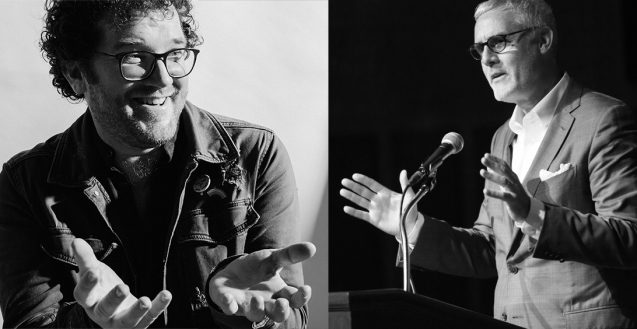“Peace on Earth” is a popular sentiment this time of year, hung beneath storefront wreaths and scrawled across holiday greeting cards. But what does peace on Earth look like exactly, during a time when the planet is experiencing rising temperatures, dwindling biodiversity, polluted water and air, and violent land disputes? Achieving peace—especially when it comes to planetary issues—has a lot to do with the language we use, according to Columbia Climate School social psychologist Peter Coleman and award-winning poet Pádraig Ó Tuama.
With support from the Morton Deutsch International Center for Cooperation and Conflict Resolution (MD-ICCCR), Teachers College, and the Climate School at Columbia University, Coleman and Ó Tuama are teaming up to explore the power of language when it comes to promoting peace, security, and sustainability across the globe. Coleman, a professor of psychology and education and director of MD-ICCCR, is an expert in conflict resolution, and editor of the seminal textbook, Handbook of Conflict Resolution: Theory and Practice (2014). Ó Tuama is a writer of poetry and prose, theologian, public speaker, and community peace builder. Originally from Ireland, from 2014-2019 he was the leader of the Corrymeela Community, Ireland’s oldest peace and reconciliation community.
From October 2021 to May 2022, Ó Tuama will be in residence in New York City working with Coleman and other collaborators at the MD-ICCCR and Climate School. The outcome will be the publication of an anthology of 35 poems exploring major themes expressed in Coleman’s award-winning handbook, which covers conflict between individuals; conflict in groups; ambivalent responses to conflict; regression, aggression and resistance; cooperation and negotiation; as well as conflict as a state of existence in the current climate crisis.
